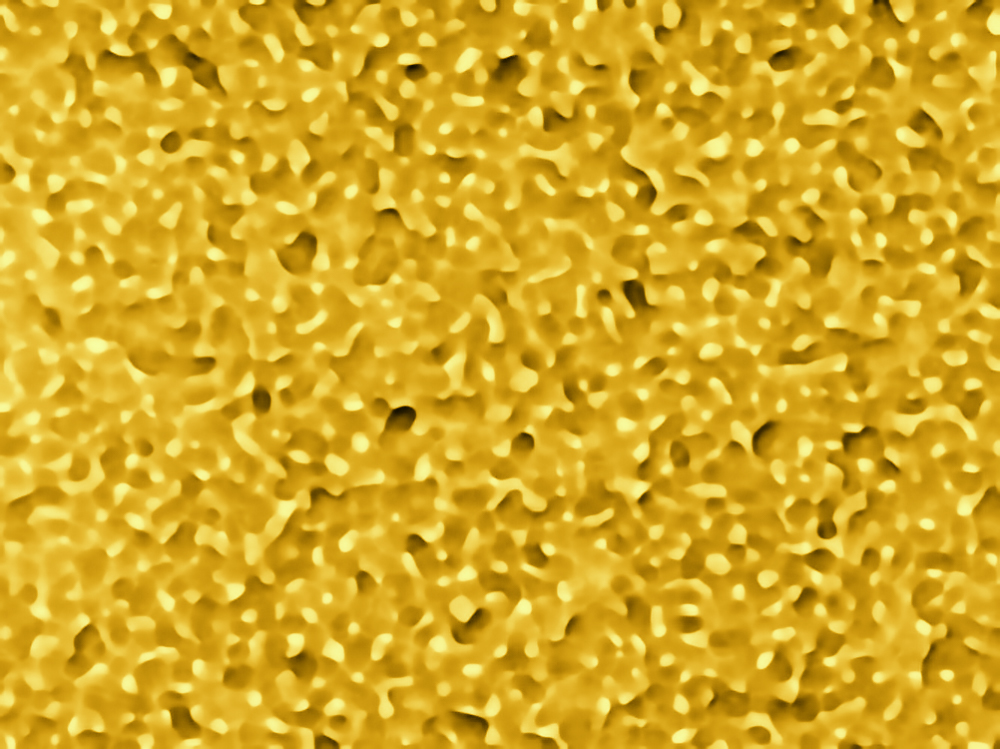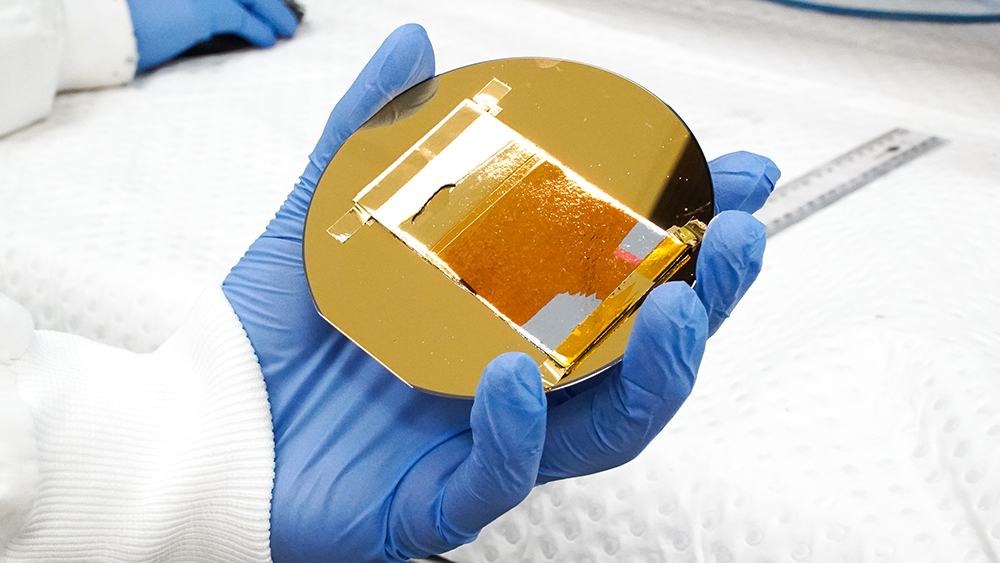Mostafa Kamal Masud and supervisors Prof. Yusuke Yamauchi and Dr MD Shahriar Hossain, from the University of Queensland (UQ), have developed a biosensor that is cheaper, faster and more sensitive than existing diagnostics.
For the first time, it allows direct detection of microRNA, which acts as a bio-marker for specific diseases. This is important in the early stages of diseases, such as cancer, where patients may not have detectable amounts of other bio-markers, but may have a detectable quantity of disease specific microRNA. The biosensor can pick up traces of the specific RNA extracted and purified from blood, urine, saliva or plasma, detecting it at extremely low levels as it is then binds to a microporous gold-covered electrode. RNA has a high affinity for gold and affects the voltage detected by the electrode. This provides a way to precisely measure the concentration of micro-RNA present in the sample.

Colour enhanced scanning electron microscope image of the mesoporous gold film used in the biosensor.
The method used to create the biosensors has been published in the prestigious science journal Nature Protocols, and in Biosensor and Bioelectronics, following 15 years of research. Access to microscopes at Microscopy Australia’s UQ facility, the Centre for Microscopy and Microanalysis, enabled this research. High resolution transmission electron microscopy let the team view the atomic structure of the porous gold film, allowing them to fine tune the production process to reduce defects. Scanning electron microscopy was used to confirm uniform pore spacing. Fellow NCRIS facility, ANFF, was used to manufacture the device.
The team is continuing to develop this platform, and plans for it to be available to medical practitioners in the next five years. “Doctors will be able to use our platform to take a small fluid sample from a patient and test for diseases instantly, for around one-quarter of the cost of other diagnostic techniques,” Prof. Yamauchi said.

Nanoengineered porous gold bio-sensor
Published on: Feb 19, 2021
Array
February 19, 2021